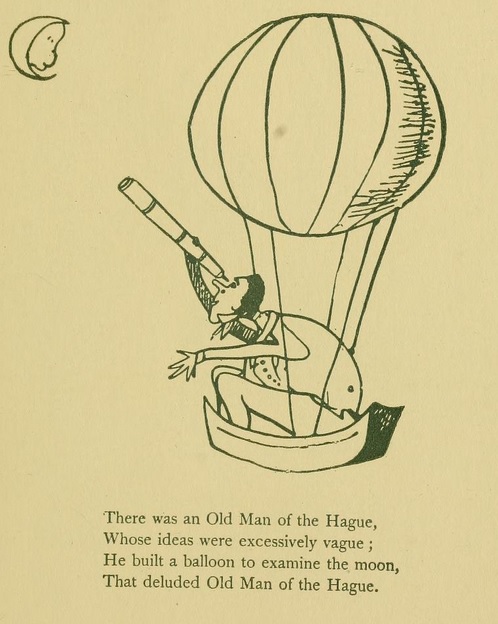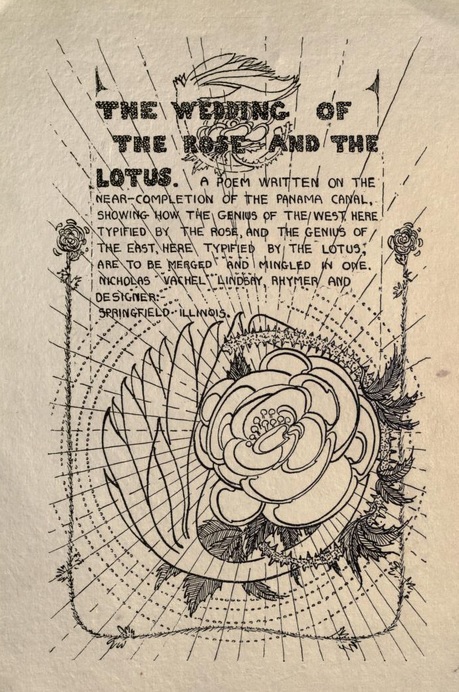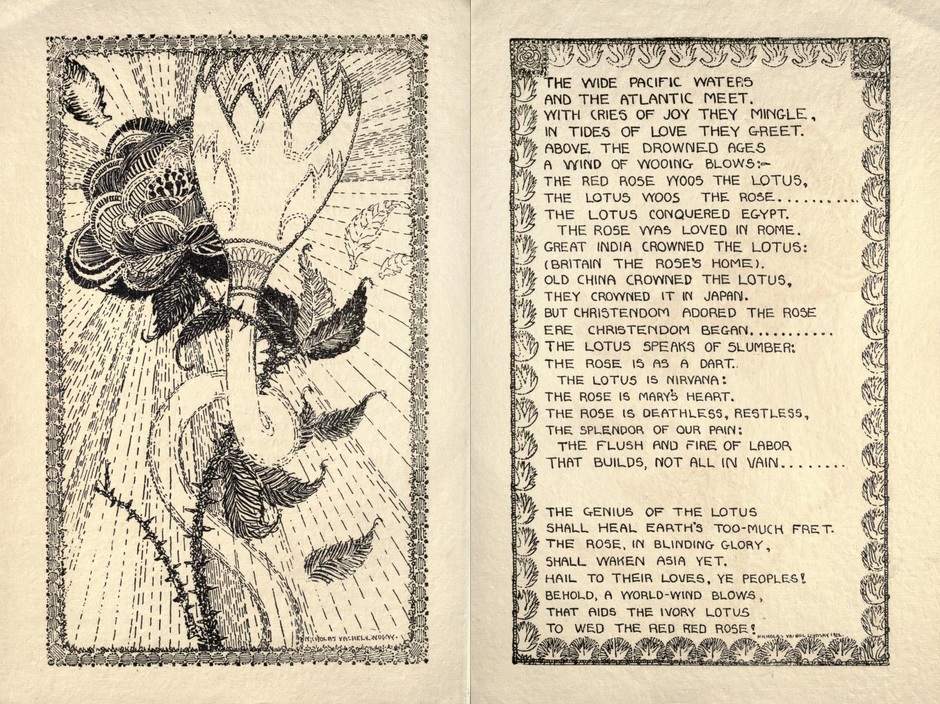TECHNICAL NOTE: The great majority of the links below are to
scanned antique books at the Internet Archive, most of them
anthologies. Poems frequently run for several pages; when coming
to the apparent end of a poem, turn the page to make sure!
Best known as a forger of "Shakespearian" plays.
Although his later works
do not pretend to be ancient, they still gives the impression
of having been written by a time-traveller from an earlier century.
"Of Foolish Astronomers and Stargazers."
Johnson, Lionel:
"Like storms of snow, like quaking sands, // Thine atoms drift through time."
Jones, Charles C.:
-
An Up-to-Date Reason Parody of the popular Victorian standard
I Cannot Sing the Old Songs. In the 1911 spoof, I cannot sing them
because I'm busy learning to fly, lest I lose my aviatrix
girl-friend.
Judson, Hanford Chase:
-
Factory Poems
The poet takes a blue-collar job, and finds in the
factory the same Romantic beauty and sublimity as in Nature.
Kaufman, Herbert:
De Morte
Expresses a strange sort of Darwinian patriotism, contemplating
the brevity of human life during the slaughter of
the Great War.
Keats, John:
Keiley, Jarvis:
Kendall, May:
-
Ether Insatiable
An ode to that which "fills circumambient space". This could easily
be set to music.
-
The Fatal Advertisements
Alien astronomers receive wireless broadcasts from Earth and
assume the adverts must have some profound meaning.
-
Love and Matter
A very clear statement of the Late
Victorian cosmic dilemma: what is the role of Love (or any human
value) in an apparently Godless universe doomed to a maximum-entropy
heat death?
-
A Warning to New Worlds
Urges other planets to avoid replicating Earth's
unfortunate evolutionary path -- don't even solidify,
if you can help it!.
Kipling, Rudyard:
-
Arithmetic on the Frontier
Highly educated officers also die in battle.
-
The Deep-Sea Cables
Accidentally Lovecraftean. There is an old musical
setting by the classical
composer Rutland Boughton, but we cannot find it online.
-
Doctors
-
Farewell and adieu to you, Greenwich ladies
Submarine vs. zeppelin in the Great War. (The title / opening line is
sometimes given as "Harwich ladies"; the tune is obvious.)
-
The Four Angels
The futility of Promethean struggle.
Apparently attractive to folk-singers.
-
A General Summary
Things haven't changed since we were "semi-apes".
There is a musical setting by Leslie Fish, but we cannot find it online.
-
The Hymn of Breaking Strain
Published in 1935 and technically still under copyright, but it would be absurd
not to include what is arguably the greatest engineering poem of all time.
The Inventor
A parody of Ralph Waldo Emerson, from The Muse among the
Motors.
Jubal and Tubal Cain
The age-old conflict of technology and fine art.
McAndrew's Hymn
A "dour Scots engineer" addresses a twelve-page soliloquy to God.
equating McAndrew with the Twenty-Third Century's
most famous dour Scots engineer. Kipling, who believed that human
nature never changes, would have loved this adaptation, reminiscent
of his own futuristic novella
With the Night Mail.
Minesweepers
The Miracles
... of technology, in the service of love. (Or at least I think that's what it's about.)
The Muse among the Motors
A series of 26 poems about automobiles, written between 1904 and 1929 and parodying famous literary styles.
In the Neolithic Age
Kipling's famous poem about the nature of art. Its language is borrowed from
the technical jargon of Victorian palæoanthropology. There is a musical setting by
Leslie Fish, but we cannot find it online.
Our Fathers of Old
The pros and cons of pre-scientific medicine. In its simultaneous defence
of tradition and progress, this is one of the most remarkable science-poems
of the long Nineteenth Century.
Poseidon's Law
Technology changes; mariners don't.
The Secret of the Machines
Classic technology poem.
The Sons of Martha
i.e. workers, technicians, engineers. Multiple musical settings exist, but
none seem to be online.
Tin Fish
Submarines in the Great War.
performed by J. Kennedy and J. Duck.
The same recorded in 1917 with Elgar himself conducting the orchestra.
The Trade
British submarines in the Great War.
A Truthful Song
"How very little since things were made // Things have altered in the building trade."
ABOUT:
- Guiterman, Arthur:
Rudyard Kipling Not quite the image of Kipling
most people have:
"I will chant in Lowland Dutch / Of Quaternions
and such, / And the boundless Fourth Dimension shall delight
to honour ME!"
Kitahara Hakushû: Leading Japanese
poet of the Taishô Era (1912-1926).
European science as it would have been perceived during the Tokugawa
shogunate: the exotic, forbidden wisdom of the West!
Ninomiya-Enright translation, 1957: the English text is probably under copyright.
Lawrence, D. H.:
Lear, Edward:
Leslie, Edgar: American popular song-writer.
"...Hop in ze motor car." (Link to sheet music.)
He'd Have to Get Under -- Get Out and Get Under (to Fix Up His Automobile)
Co-written with Grant Clarke. (Link to sheet music.)
Leverett, Mary E.:
Bacteria amoris, the cause of dolor cordis.
Lindsay, Vachel:
As is evident from even the titles
of some of the poems below, the "Prairie Troubador" usually
comes across as quite hostile to science and technology, but
a few of his works are more ambivalent or take the common
Romantic position that science will realise its true purpose
in the future when it rediscovers the mysterious sublimity of
Nature. Lindsay seems to have had enormous
stylistic influence on the great
Twentieth Century poet-palæontologist
Loren Eiseley, but Eiseley, like most of his generation,
was far more pessimistic.
A very powerful love poem which
uses some cosmological imagery as a backdrop.
Euclid Similar to Whitman's "Learn'd Astronomer".
[Emily Ezust's Lieder Page]
Musical setting by Jake Heggie
Factory Windows are Always Broken ... and there's a reason
for that.
The Horrid Voice of Science That's the original title,
although this particular edition tones it down and makes it
a sequel to "The Scientific Aspiration" (below). The poem
itself is unaltered, and about as anti-science as one can get.
A Rhyme About an Electrical Advertising Sign Almost perfectly
exemplifies the attitude of many Long Nineteenth Century poets
toward science and technology.
The Scientific Aspiration A poem that can be read in quite
different ways.
The Wedding of the Rose and the Lotus
"a poem written on the near-completion of the Panama Canal,
showing how the genius of the west, here typified by the rose, and the
genius of the east, here typified by the lotus, are to be merged
and mingled in one."
Longfellow, Henry Wadsworth:
Lowell, Amy:



